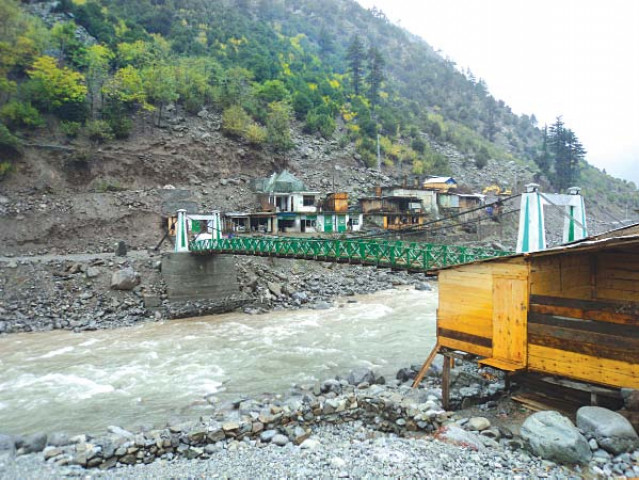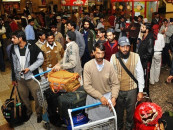Missing facilities: Mankyal still without infrastructure
Delay in infrastructure repair creating problems for people.

Missing facilities: Mankyal still without infrastructure
The people of Mankyal, a scenic valley across the Swat River, are facing scores of problems due to lack of basic infrastructure.
The 2010 floods washed away 200 houses and shops, seven power stations, three primary schools and one high school, along with dozens of small bridges and a network of irrigation channels in the valley.
Mankyal Union Council consists of three primary villages (Qadeem, Jadeed and Oghan Kaley) and hamlets.
More than a year later, the area remains neglected by the government, and locals are now faced with multiplying issues. Neroz Khan, an elder of Mankyal, said the devastation of the floods is starkly apparent in the now defunct fields, schools and mosques.
The source of the devastation has been pinpointed to two rivers - Kalam and Sra Kaat - which allegedly left the villagers stranded for months.
“Initially some NGOs helped with edible and non-perishable items, but the government has completely ignored us,” Khan said.
Talemand, a social activist and resident of Qadeem, states that “the 2010 floods wreaked havoc which is clearly visible. The entire social fabric has been uprooted and though some humanitarian organisations assisted us, they did nothing for infrastructure restoration.”
Mankyal valley is connected to the rest of Swat by a bridge which has been washed away leaving the population of over 15,000 stranded for months. The only structure constructed by the government is a temporary bridge, and it is not a permanent solution, according to Talemand. “It is only a hanging bridge to be used in emergencies. Reconstruction of the 20km RCC Bridge is needed.” Due to the inaccessibility of transport vans, residents of the valley must carry food items purchased from far-off villages.
A lack of irrigation channels for the agriculture-based economy is causing a major hit in fruit and vegetable crop production. “The area was a big producer of vegetables, which were exported to Rawalpindi, Lahore and Peshawar, but since the floods we have not been able to produce vegetables because no irrigation channel is intact,” said Mohammad Bashir, adding that the shortage of schools has resulted in students from multiple schools studied under one roof. With none of the school listed for reconstruction by the government, there is no visible end to the problem. “Our MPA once visited our village, during which he announced many packages, but there has been no progress on his promises.”
Published in The Express Tribune, November 22nd, 2011.













COMMENTS
Comments are moderated and generally will be posted if they are on-topic and not abusive.
For more information, please see our Comments FAQ